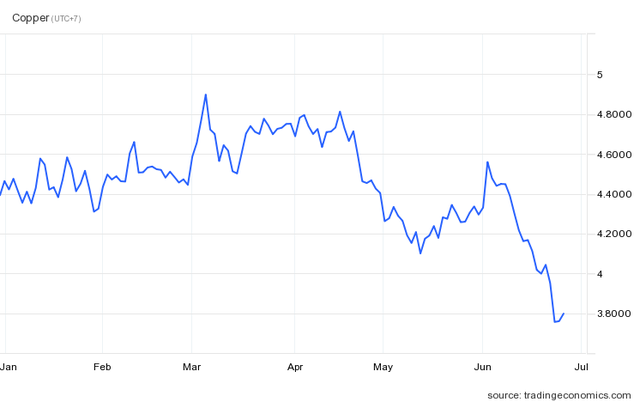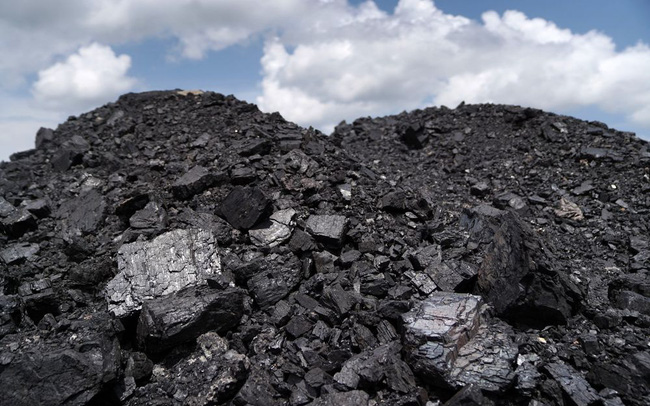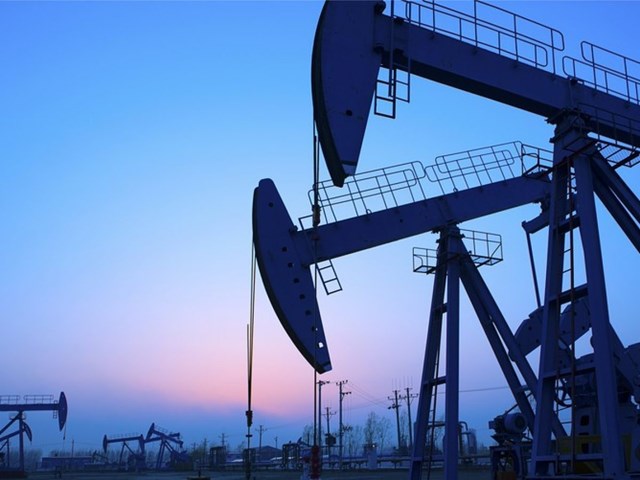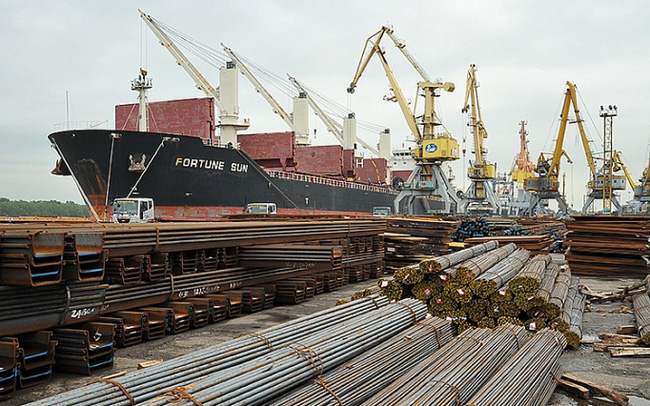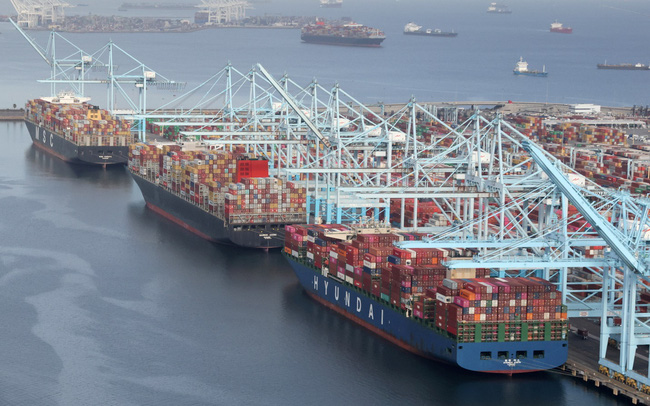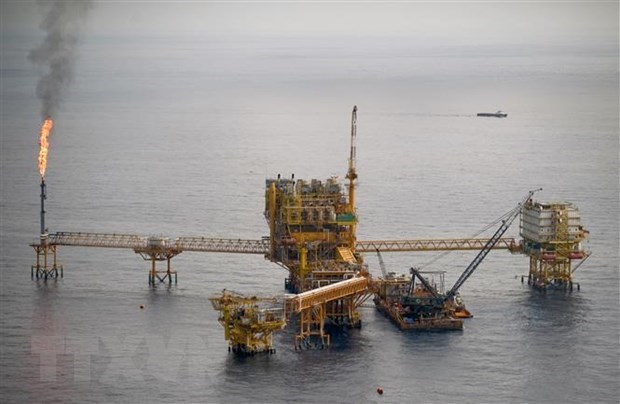The price of copper has fallen to a record low in the past 16 months as an alarm bell about the current economic recession. This metal is inherently considered an economic measure when the price of this commodity is used by experts to reflect the growth of the economy.
Economic gauge – copper metal
In the energy market, some investors see copper prices as a support factor for the global economy. However, recently, experts have been worried about an economic recession when the price of this metal has continuously declined sharply.
Copper prices hit a 16-month low on June 23, at $8,757 a tonne as traders repeatedly dumped the metal, which has fallen more than 11% in the past two weeks and down 14% year-to-date.
Daniel Ghali, head of commodity strategy at TD Securities, said that the plunge in copper prices is reflecting the reality of slowing global growth.
This metal is commonly used in many building materials, including electrical wiring and plumbing. That means the metal is a measure of the economy because it heats up when the economy is strong and cools when the economy shrinks. Traders call this metal “Doctor” because of its ability to predict the economy.
Speaking before the Senate Banking Committee, Fed Chairman Jay Powell acknowledged that plans to raise interest rates this year could plunge the world’s largest economy into recession. That message also weighed on prices of other metals. Aluminum fell 2.67%, nickel lost 1.7% and tin fell 9% in trading on June 23.
Movement of copper prices in the first 6 months of the year. Source: Tradingeconomics.com
At the beginning of this year after Russia started hostilities in Ukraine, the price of copper skyrocketed along with several other metals. According to data from S&P Global, Russia accounts for 4% of global copper production and nearly 7% of nickel production. Traders are worried that supply may be shorted just as the economic recovery from the Covid-19 pandemic is hastened and they start hoarding actively. However, as recession fears continue to hold, copper prices are moving in the opposite direction.
Published data added to signs of a recession, with a survey of business activity showing that Germany, Europe’s largest economy, lost momentum sharply towards the end of the second quarter.
“Once that impulse to hoarding ends, global commodity demand begins to reconnect with global growth,” Mr. Ghali said. This is implicitly indicating that economic activity is moving lower as food and fuel prices rise.
The fall in metal prices also spilled over into the mining sector, with shares of some of the world’s biggest producers plummeting this month. London-listed Rio Tinto is down nearly 13% and Anglo American is down more than 18%.
The Purchasing Managers’ Index released by S&P Global on Thursday showed that US private-sector output grew slowly this month.
Williamson, chief business economist at S&P Global Market Intelligence, said the boom from consumers returning from the easing of pandemic restrictions, many services companies are seeing households increasingly struggling with rising living costs, while manufacturers of non-essential goods are similarly reducing orders.
also became much more stressed about the businesses prospects as the Federal Reserve aggressively raised interest rates in an attempt to hold back prices that have risen.
“Business confidence is at an alarming rate, which often foreshadows a recession that’s on the horizon, adding to the risk of a recession,” Williamson said.
In Europe, the PMI (a usage index for the 19 countries that use the euro) is pointing to growth in June falling to a 16-month low.
China, which has been an important driver of global growth, is still struggling with the Covid-19 epidemic and has been hit hard by the decline in the real estate sector. Its economy showed signs of improvement in May, but retail sales fell for the third consecutive month.
So experts are concerned about what will happen next. Economic growth in China is expected to pick up later this year, and copper and other commodity prices should recover by that time. Darwei, Commodity Category Manager at DWS, said, adding that it is ambiguous exactly when that moment will come.
Meanwhile, copper prices are likely to fall further as worries about the economy persist.
“Over the medium term, copper prices are more likely to fall further, especially as we are seeing an economic downturn growing in strength,” said Ghali.
Will there be a “Lehman effect”?
The Lehman effect or Lehman moment is a term used to refer to a possible crisis like the bankruptcy of Lehman Brothers that caused the global financial crisis in 2008.
In fact, there are many concerns in the energy market that could lead to a crisis. Germany, Europe’s largest economy, is concerned that Russia cuts its access to natural gas.
German Economy Minister Robert Habeck recently warned that keeping companies in the energy sector despite rising costs is essential to stave off a market downturn.
“If companies start to struggle under the pressure of skyrocketing prices, the whole market is in danger of collapsing at some point. So a Lehman Brothers effect in the energy system has might happen.”
Europe’s largest economy faces a crisis to conserve gas supplies as Russia tries to cut back. Russian gas company Gazprom cut 60 percent of flows through the Nord Stream 1 pipeline to Germany last week, a move as part of a response to Western sanctions.
Germany is one step closer to how to allocate limited gas supplies to businesses – a move that would deal a blow to the manufacturing hub of its economy.
References: FT, CNN
T&G Import-Export Joint Stock Company
Address: 352 Hue Street, Le Dai Hanh Ward, Hai Ba Trung District, Hanoi
Hotline: 02473010868
Email: hrm@tginterjsc.com
Website: http://tgimportexport.com



